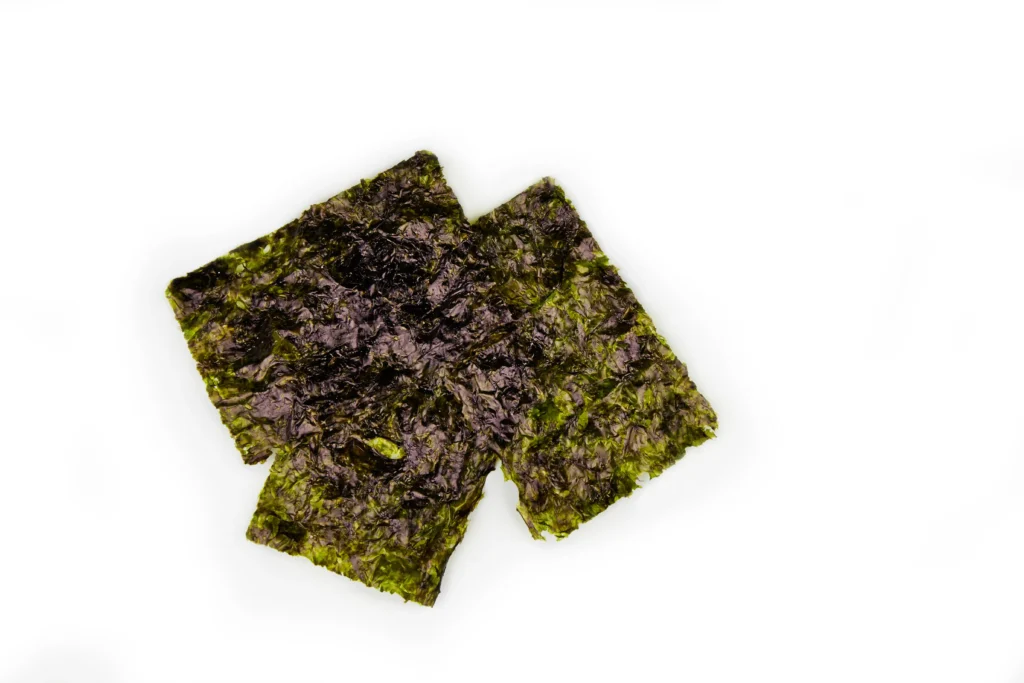Can Dogs Eat Seaweed?
Yes, dogs can eat certain types of seaweed safely when properly prepared and served in moderation. Seaweed is rich in essential nutrients including iodine, iron, omega-3 fatty acids, and B-vitamins. These nutrients can support your dog’s thyroid function, immune system, and coat health.

How to Feed Seaweed to Dogs
The safest way to introduce seaweed to your dog’s diet is through:
- Use plain, dried nori sheets (the type used for sushi)
- Break into small pieces to prevent choking
- Avoid seasoned seaweed snacks meant for humans
- Never feed raw seaweed collected from beaches
- Choose commercial seaweed supplements specifically made for dogs
Warnings and Considerations
- NEVER allow dogs to eat seaweed from beaches or shorelines – wild seaweed can expand in the stomach and cause dangerous blockages
- Avoid wasabi-flavored or seasoned seaweed which may contain harmful ingredients
- Watch for excess salt content in processed seaweed products
- Monitor for iodine sensitivity – some dogs may be sensitive to high iodine levels
- Keep whole nori sheets away from dogs as they might swallow them whole

Portion Guidelines
- Small dogs: ¼ sheet of nori, 2-3 times per week
- Medium dogs: ½ sheet of nori, 2-3 times per week
- Large dogs: 1 small sheet of nori, 2-3 times per week
Special Considerations
- Dogs with thyroid conditions should only consume seaweed under veterinary supervision due to its high iodine content
- If your dog has kidney disease, consult your vet before feeding seaweed due to its mineral content
- Pregnant or nursing dogs should avoid seaweed supplements unless approved by a veterinarian
Good to know: While seaweed is nutritious, it should never replace a balanced dog food diet. Some commercially available seaweed supplements for dogs undergo special processing to ensure appropriate mineral levels and safe consumption. If you’re interested in adding seaweed to your dog’s diet for specific health benefits, consult with your veterinarian about the most appropriate form and dosage.
Emergency Warning: If your dog has consumed wild seaweed from a beach, monitor for signs of intestinal blockage including vomiting, lethargy, loss of appetite, or abdominal pain. Seek immediate veterinary care if these symptoms occur, as expansion of dried seaweed in the digestive tract can be life-threatening.







